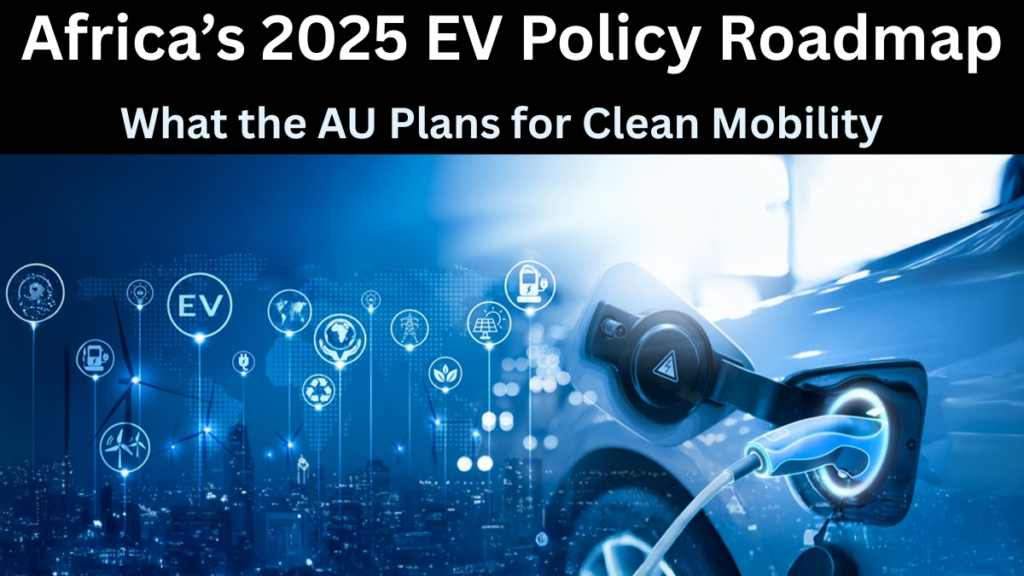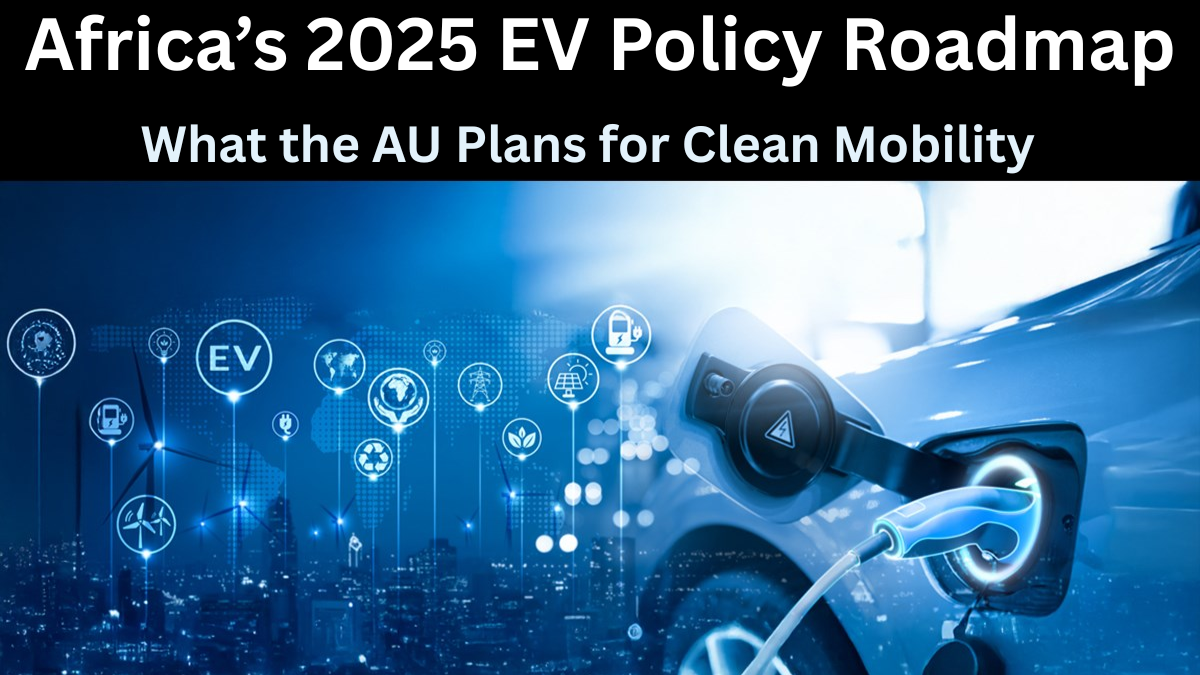The African Union (AU) is taking meaningful steps towards clean, sustainable transportation. With the growing demand for electric vehicles (EVs), Africa is now shaping a Green Roadmap to fast-track eco-friendly mobility across the continent. This EV Policy Africa strategy is designed to help reduce carbon emissions while boosting local industries and creating thousands of green jobs.
Let’s explore how the AU plans to roll out its 2025 EV policy and what it means for Africa’s transport future.

Why Africa Needs an EV Policy
Africa is witnessing rapid urbanization and increasing vehicle ownership. However, this growth comes with significant environmental concerns. The AU’s EV Policy Africa addresses these challenges with a well-structured, green roadmap.
Key Reasons for the EV Push:
-
Rising Urban Pollution: Major African cities are battling high levels of air pollution from traditional fuel-based transport.
-
Climate Change Pressure: There’s a growing need to cut carbon emissions and meet global climate targets.
-
Energy Security: Shifting to EVs can reduce reliance on imported fossil fuels.
-
Economic Growth: EV adoption could foster local manufacturing, job creation, and technological innovation.
AU’s Green Roadmap for EVs: 2025 Vision
The African Union’s Green Roadmap focuses on building a unified, continental strategy to support EV infrastructure and encourage policy alignment among member states.
Core Components of the EV Policy Africa:
| Component | Description |
|---|---|
| Policy Harmonization | Align EV regulations across African countries. |
| Charging Infrastructure | Set up continent-wide EV charging networks. |
| Incentives & Subsidies | Promote tax breaks and subsidies for EV buyers. |
| Local Manufacturing Support | Boost EV assembly and battery production locally. |
| Capacity Building | Train local workforces for green mobility jobs. |
Key Steps in the EV Policy Africa Rollout
The Green Roadmap isn’t just a plan on paper. The AU has mapped out specific actions for 2025.
Major Actions:
-
Cross-Border EV Standards: Develop common vehicle and charging standards to enable seamless EV movement across countries.
-
Investment Mobilization: Partner with private sectors and international donors to fund EV-related projects.
-
Public Transport Electrification: Focus on electric buses and taxis for urban areas.
-
Renewable Energy Integration: Ensure EV charging stations are powered by solar, wind, or hydropower where possible.
What This Means for Africans
The EV Policy Africa will impact daily life across the continent in several ways.
Positive Impacts:
-
Lower Air Pollution: Cleaner cities with improved public health.
-
Affordable Mobility: Gradual decrease in EV prices through subsidies and local production.
-
Job Creation: New opportunities in EV assembly, battery recycling, and charging infrastructure.
-
Energy Efficiency: Reduced dependence on petrol and diesel.
Challenges to Watch
Despite its exciting potential, the Green Roadmap faces some hurdles.
Key Challenges:
-
High Initial Costs: EVs and charging stations still have steep upfront costs.
-
Grid Reliability: Many regions need stronger electricity grids to support large-scale EV charging.
-
Policy Implementation: Ensuring all member states effectively adopt and enforce the policy.
The Road Ahead
Africa’s transition to electric mobility is a critical step toward a sustainable future. The EV Policy Africa offers a clear Green Roadmap for cleaner transport, stronger economies, and healthier communities.
FAQs
1. What is the African Union’s 2025 EV Policy Roadmap?
The AU’s EV Policy Africa is a strategic plan aiming to promote electric vehicle adoption across the continent through unified regulations, infrastructure development, and green energy integration.
2. How will the EV Policy Africa benefit local industries?
The Green Roadmap supports local EV manufacturing, battery production, and workforce training, which can lead to job creation and industrial growth.
3. Are there any financial incentives under this policy?
Yes, the AU is encouraging subsidies, tax cuts, and other financial incentives to make EVs more affordable and attractive for African consumers.
4. What challenges could slow down the EV rollout in Africa?
Challenges include high initial EV costs, insufficient charging infrastructure, and the need for stronger electricity grids in some regions.
Click here to learn more
Sachin is a dedicated writer specializing in education, career, and recruitment topics, delivering clear and actionable insights to empower readers.
